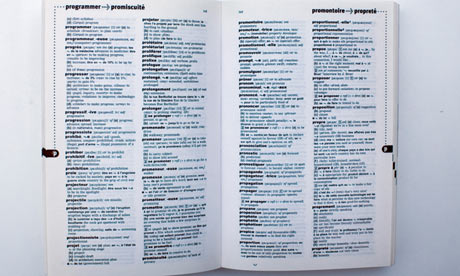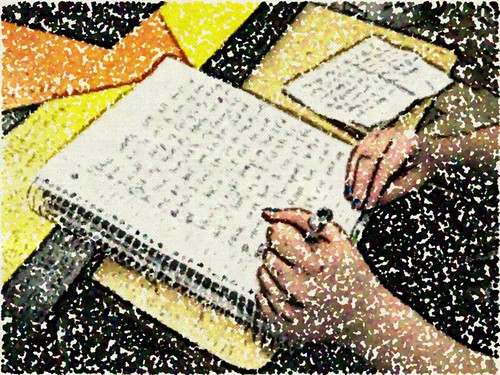…on US National Grammar Day…tolerance and being less judgmental prescriptive the rest of the year too would be nice too. As Kory Stamper points out in this essay,"Vigilante peeving does nothing to actually educate people. What it does instead is shame them and make them feel bad about how they speak, write, and even think."
 |
Most dictionaries feature usage guides and and tips, though,
like grammarians, not all agree. Photograph: Felix Clay |
This National Grammar Day, I'd like to see the smugly correct put aside their peevs. English is hard enough without asshats
I love
National Grammar Day. I also hate National Grammar Day. That may be surprising – after all, I'm a journeyman grammarian. I make my bread deciding whether a word is an attributive noun or adjective, parsing adverbial uses over conjunctive uses, writing those delightfully boring usage notes in your dictionary.
I love National Grammar Day for all the reasons you'd expect a massive nerd like me to love it: a chance to revel in and highlight the most-dear idiosyncrasies of my language and our feeble attempts to explain it. All you need to do is read through all the
Grammar Day haiku that have been written, each falling like a cherry blossom in late spring, to get in the spirit.
But I also hate National Grammar Day, because it ends up being less a celebration of the weirdness of English and more an annual conclave of the "
peeververein" (as gentleman-copyeditor
John E McIntyre so eloquently calls them) [and] correct[ing public] signage in the name of "good grammar". Grocer's apostrophes are scribbled out, misspellings fixed, and... [an] orgy of less/fewer corrections.
....
Remember, this National Grammar Day, that there are people all around you with varying degrees of knowledge of and appreciation for the intricacies of English. Instead of calling people out on 4 March for all the usages they get wrong, how about pointing out all the thing things that people – against all odds – get right?
Read the rest of A plea for syntactical sanity on US National Grammar Day | Kory Stamper This article was originally published by harm•less drudg•ery is crossposted by kind permission of the author











